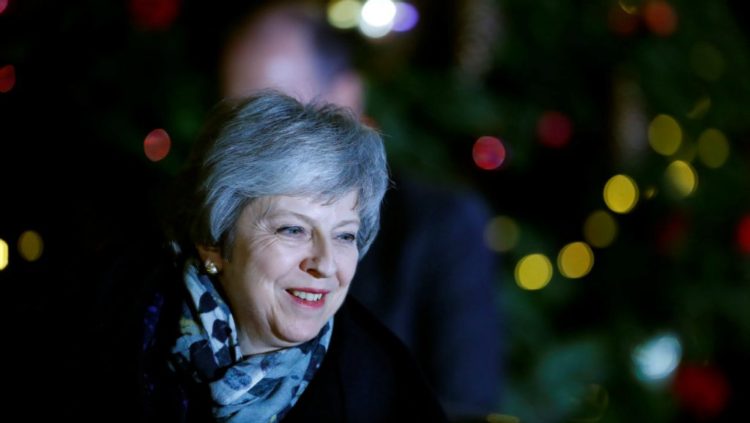By Ben Kerrigan And Sammie Jones-
Theresa May was cheered as she won the no confidence vote by a margin of 200 to 117, establishing her support in the commons in the midst of the discontent of her leadership over the highly disputed Brexit deal. Despite the threshold of 48 letters expressing a loss of confidence in her leadership, she still emerged a winner
Before the vote beginning at 6pm, Mrs May had addressed Conservative Party MPs at a meeting of the 1922 Committee.Jacob Rees-Mogg, who led calls for the confidence vote, described the outcome as a “terrible result for the prime minister” and called on her to resign. Mogg’s representatives had promised The Eye Of Media.Com an interview some 2 hours before the vote took place, and although we were called back by his press spokesperson, his return call never arrived. We had wanted to know what he thought May was not doing that her expected successor could do better, and who his recommendation would be. We will probably never know. That would be useful information to have.
The embattled prime minister had promised to step down at the end of Brexit negotiations and not contest the next general election, but this was meant to be a last minute attempt to save her job, and the shame that would come with such a humiliating exit from it.
Solicitor general Robert Buckland told reporters after the meeting: “She said ‘In my heart I would like to lead the party into the next election’ and then that was the introductory phrase to her indication that she would accept the fact that that would not happen, that is not her intention”.
May said she had listened to the concerns of MPs who voted against her and would be fighting for changes to her Brexit deal at an EU summit on Thursday. She said she had a “renewed mission – delivering the Brexit people voted for, bringing the country back together and building a country that really works for everyone.”
Mrs May now has the difficult task of getting stubborn EU leaders to reverse their withdrawal agreement. The EU have made it clear that they their deal will not change, making May’s trip top Brussels appear more of a routine trip than a productive one. The question here is what exactly can be done to change the deadlock. EU leaders appear to be acting stubbornly, by acting so inflexibly.
The DUP have threatened to end their support for the prime minister without a compromise on the Irish boarder back stop, but if EU leaders are the problem, they should be confronted on this. At the moment, May stays on to continue to handle the very difficult job that faces her on this tough issue of a workable and mutually agreeable Brexit deal.




